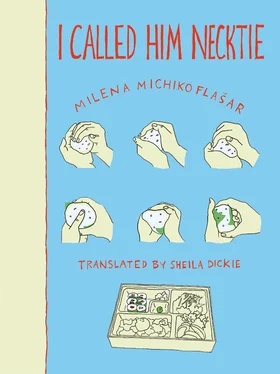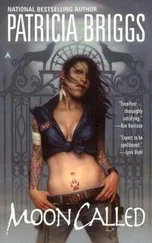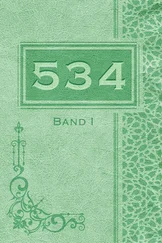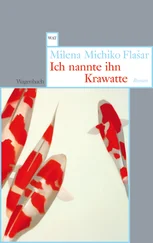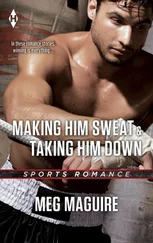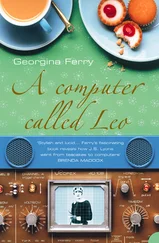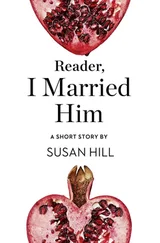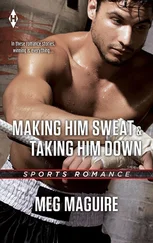At the beginning of course I had no idea. He left the house punctually at half past seven, came home in the evening, tired, went to sleep in front of the television. Not unusual. I covered him up. And as I was covering him I heard him whispering my name in a dream. Kyōko. Suddenly he was awake. I say: Suddenly. Like a dead man on a bier rising up with a jolt, his arms full of life flung around me, holding me in his embrace, almost crushing me, his breath close to my ear: Forgive me. Please. Forgive me. I gasped for breath. Then he let me go. His arms limp again, he sank back, fell asleep once more, deeper than before, his mouth half open. What a fool I am, I thought, and called up the firm the following day. When I put down the receiver I became aware of the significance of our decisions: He wanted to stay with the promise of his daily routine, I wanted to stay with him for the sake of our daily routine. In this tiny moment, as I put the receiver back on the cradle, I became aware of the beauty of it, that harmonious beauty, in our attempt to remain true to the decisions we had taken.
105
In a way he worked hard right to the end. If you understand. He didn’t particularly like his work. What he liked about it was only the routine and the satisfaction he got from keeping it up. The seamlessness of it. Even when nothing else functioned. To maintain this seamlessness, despite the reality, was the hardest work he had ever done.
It’s only obvious to me now. Kyōko put the tie around her neck. But I’m doing the same thing as him. Do you see the ashtray there? All the butts? I can’t bring myself to throw them away. The newspaper spread out over there. He read it, in his bubble, turned the pages back and forth. I can’t manage to throw it away. The pack of senbei* on the side table. No longer crisp. The bottle of beer he drank with them. Flat. In the sink in the bathroom I found one of his gray hairs. I’ve kept it. His toothbrush. The bristles all bent. The hand towel. The razor. Everything in its place. They gave me what he had been wearing. The watch. The shoes. The briefcase. Inside was a note: You only live once, they say, so why do you die so often. Only the tie was missing. I looked for it. They call it mourning. And I think that was the reason he tried so hard to be someone who functioned. By holding on to how things had always been, he was mourning what was missing: Our son, his love for him. What you don’t do, what you omit, often has more painful consequences than what you do. If I had shaken him awake. If I had spoken to him right after the phone call to his firm: I am not staying with you because of our daily routine, but for your own sake. And also. If you hadn’t acted on your desire to come here, I would still be searching for his tie tomorrow and thinking: I did not know him. I want to thank you for that. Kyōko took my hand and squeezed it. Thank you for having met him.
106
Before you go. She pointed to the door opposite, on the other side of the hall. In there, in the baby’s room is the Butsudan*. It would be nice if you. Three breaths, a pause. Would sit with him one more time.
Stepping over the threshold.
I closed the door behind me. A small room, no bigger than mine, ten square meters at most. No furniture. Only the altar. A floor cushion in front of it. I sat down. Fresh flowers on either side. His bento box, wrapped in blue cloth. A photo. Tsuyoshi. A second one. Him. I put in the incense sticks, rang the bell, placed my hands together. As my palms touched, it was as if there were no walls around me. Something gave way inside me. I burst into tears. I hadn’t cried for so long that my tears were like those of a child or a very old person. I cried without restraint or discretion. Cried for him and all the others who were gone. For Kyōko. My parents. Myself. Cried most of all for those who remained.
Can you hear me? Sighing. You were right. My requiem is well prepared. Still to be written is the poem that is never complete, an endless rubbing on the ink block, an endless dipping of the pen, an endless swoop over the white paper, the poem of my life. I will try to write it down. Soon, no, now, I will try. The first line. I called him Necktie. I will write: He taught me to see with eyes of feeling.
107
They say a teacher is immortal. Even if he leaves his body, what he has taught lives on in the hearts of his pupils. I was compelled to think of that as I traveled home, down the hill. With a detached stare I saw the people, heads on their chests, being shaken to and fro, and all at once my gaze penetrated to a deeper level, beyond the bones and organs, beyond even that, into the indefinable, which no longer terrified me, but filled me with amazement. It was as if the tears I cried had cleared a sad veil from my eyes, and my I can no longer! turned into a question: What can I do?
Taguchi!
Someone was calling my name.
Taguchi Hiro!
In the crush of the subway station someone grabbed me by the shoulder. I turned around.
Kumamoto!
How could it be? There he stood, alive before me. The white hand, there it was. He stretched it out towards me. I grasped it.
Long time no see. Come on, let’s go up there. He was limping. To the café over there? A free table. What luck, he laughed, dammit, what luck. An empty table at this time of day. Giggling girls sat at a nearby table, busy deciding whether the lip gloss they bought suited their skin color. A few salarymen too. They were talking on their phones. A student chewing gum, who pulled the gum out with his fingers and let it snap back, blew a bubble, it burst. What luck, repeated Kumamoto. I’ve often wondered what it would be like if I bumped into you. I had prepared entire sentences. Just in case. Stupid really. I can’t remember a single one of them. All gone. Up there. He tapped his forehead.
What happened, I asked. I thought you were…
… dead. Yes, well, I was. To the core. He didn’t put his hand in front of his mouth, didn’t lower his voice: Five weeks of artificially induced coma. After that I woke up. It was a slow awakening, blinking, a light lift of the covers, spreading the fingers. As the memory dripped back into my brain, I would rather have gone to sleep again. Motionless, without consciousness. To lie still there while outside there was life. From my window I saw the city lights. You were in my thoughts too. How you came towards me. Your trust in me and my cheerfulness. I did not want to be responsible for abusing your trust. I felt it like a sharp pain below the left hip.
108
Kumamoto had changed. There was no longer anything feverish in his movements. They were more sedate than anything else. His body appeared bloated, I thought of a corpse that had been under water and now slopped onto land on a strong current. That’s the medication, he said. He stretched out his lame leg.
It’s good, I said. Good to see you again.
He nodded: Really good.
Are you better now?
I don’t know. After each accident, they persisted in calling them accidents, another one happened, just after I was released. Gas. Our house almost blew up. I was admitted to a clinic. They gave me these tablets. I slept again, gently compelled to sleep. I only have fragments of memory. There was a light beam that tickled my nose. A water carafe. A sprig of cherry, the buds opened. A nurse. Her hair up in a knot. A picture. She would take out the clip, her hair would fall in soft waves down her back. A patient who constantly babbled. We called him the drunkard. Though he only drank water and tea like the rest of us. Once I spoke to him. He explained to me in a babble that he had such a longing to lie down in the street, in a corner, in a state of intoxication, without memory, without a past, to hear people’s footsteps passing by. It would comfort him, he said, this sound of passing shoes.
Читать дальше
